

Jamaica’s Tourism Minister Bartlett mourns the death of Senator Frank Pringle
Jamaica’s Tourism Minister, Hon. Edmund Bartlett has offered condolences to the family of former Minister of Tourism, Senator Donald Frank McKenzie Pringle, who died yesterday, at the age of 88.
“On behalf of the Government of Jamaica, I offer my condolences to the family and loved ones of Ambassador Pringle – especially his daughter, Kerstin and two grandchildren, Israel and Isabell.
The tourism industry has certainly suffered an extreme loss and we remain very grateful for the invaluable contribution he has made to the development of the sector,” said Minister Bartlett.
Senator Pringle was a Cabinet Member and Minister of Tourism from 1989 to 1992, while also serving as senator. He was also a Member of the Jamaica Tourist Board, Director on the Board of Air Jamaica, as well as Jamaica’s representative to the Executive Council of the United Nations World Tourism Organization (UNWTO).
“Senator Pringle dedicated much of his life to Jamaica’s tourism industry, serving both in the public and private sector. He was very passionate about the growth of our tourism product and did an incredible job to ensure that our industry was not only successful, but that it also benefited the people of the country. He was selfless, always putting country above himself and saw the vision of how far tourism could go. His legacy is indelibly etched in our history and will be remembered for years to come,” said the Minister.
Over the years, Ambassador Pringle has served as a diplomat, Justice of the Peace and a member of the Jamaica Parish Council. He was also the Founder and Director of The Tryall Club and founder and President of the Jamaica Association of Villas and Apartments.
Additionally, he was involved in the founding of Round Hill Hotel & Villas, and served as aide-de-camp to the Governor-General.
“It was my hope to honour Ambassador Pringle, while he was alive at the Golden Tourism Day Award Ceremony taking place on Sunday. His sudden passing indeed came as quite a surprise and I am very saddened to know he is no longer with us,” said the Minister.

UN Climate Change and WTTC highlight role of travel and tourism in attaining a carbon neutral world by 2050
The World Travel & Tourism Council (WTTC) and UN Climate Change today showcased how the travel and tourism sector can take steps towards carbon neutrality by 2050.
In April, WTTC, which represents the global private sector of travel and tourism, announced the agreement of a common agenda with UN Climate Change, an international treaty which aims for the stabilisation of greenhouse gas concentrations in the atmosphere, paving the way for Travel & Tourism to engage more effectively in the delivery of global goals around climate change.
Today at the UN Climate Conference (COP24) in Katowice, Poland, during the first Travel & Tourism event ever held at the annual COP, both organisations addressed the links between Travel & Tourism and climate change and presented a pathway for the sector to achieve carbon neutrality by 2050.
Speaking ahead of the event at COP24, Gloria Guevara, President and CEO, WTTC, said: “Travel and tourism has an important role to play around the world in economic development, presently accounting for 10.4% of global GDP and supporting 1 in 10 of all jobs, which is more than comparative sectors, such as automotive, chemicals manufacturing, banking and financial services.
“Given our sector’s contribution to social and economic development, it is important that Travel & Tourism plays its part in the drive towards climate neutrality, under the auspices of the UN Climate Change body,” said Ms. Guevara.
“Today, we are announcing that we will continue to work with UN Climate Change to highlight to consumers the positive contribution Travel & Tourism can make to building climate resilience; the establishment of an industry recognition scheme; and the creation of an annual “State of the Climate” event and report to evaluate, monitor and share progress towards climate neutrality. As a major world sector, Travel & Tourism stands ready to play its part in this bright future.”
UN Climate Change Executive Secretary Patricia Espinosa encourages the Travel & Tourism sector to find new, innovative and sustainable ways to reduce its carbon footprint. “On a basic level, doing so is simply a question of survival,” said Ms. Espinosa. “But on another level, it’s about capturing opportunity. It’s about transforming your businesses to be part of a global economic shift—one marked by sustainable growth and powered by renewable energy.”
“We are already experiencing the impacts of climate change in Fiji and in the rest of our Pacific Island countries,” said High-Level Climate Champion H.E. Inia Seruiratu, Fiji’s Minister for Defence and National Security.
“The Travel & Tourism sector is a major revenue earner for our country. Unfortunately, the attractions that drive this sector – our reefs, sandy beaches, clear seas, and forest biodiversity – are under threat from the impacts of climate change. Innovative financing where the Travel & Tourism sector can support our small island economies to respond to these threats is needed and I am very encouraged that the sector is eager to engage in such initiatives and strengthen public-private partnerships in the fight against climate change.”

SUNx & Ingle International Announce SDG-17 Climate Resilience Partnership
A Climate Resilience partnership, focussed on creating 100,000 Strong Climate Champions by 2030 was announced today at COP 24 in Katowice, Poland.
The partnership, which was made in the spirit of SDG-17, is between leading Canadian-based global travel risk management and travel insurance provider Ingle International Inc., and SUNx (Strong Universal Network), which focusses on Climate Friendly Travel. The partnership is founded on a shared commitment to develop the Maurice Strong Legacy Scholarship Program, with Ingle International as its first global sponsor.
Speaking from COP 24 – the United Nations Climate Change Conference, Professor Geoffrey Lipman, Co-founder of SUNx, said:
“We are honoured to announce our partnership with Ingle International to launch the global rollout of the Maurice Strong Legacy Scholarship Program. This will create 100,000 “Strong Climate Champions” by 2030, in every UN State, to help to drive the behavioural change and influence the fundamental government and industry actions needed to tackle Climate Change.
We need to realize the exposure to our children and grandchildren. We need to stop talking amongst ourselves and engage directly with future generations. SUNx – a legacy initiative for Maurice Strong, the father of global Sustainable Development Action – will spearhead a movement for 100,000 climate activists by 2030, responding creatively to the Paris Accords and SDG-13.
By the simple act of a Scholarship Plan for graduates committed to help society take action towards more stable temperature levels, we can empower the next generation, who are the ones that will have to really deal with the transformation to the New Climate Economy.”
Robin Ingle, CEO of Ingle International said:
“As a global travel risk management and insurance provider, we specialize in assessing risk, and there is no greater risk to our civilisation than Climate Change, as Sir David Attenborough pointed out at the start of the COP 24 meeting. At the same time, we identify ways to mitigate and respond to these risks positively, and we see no better means in doing this than to empower the next generation with the knowledge base that they will need to take action. Also, as a Canadian, I recognise the immense contribution that Maurice Strong made for half a century to help put in place the actions we are taking today. These are some of the reasons why Ingle International is proud to be the first global sponsor of this important program.”
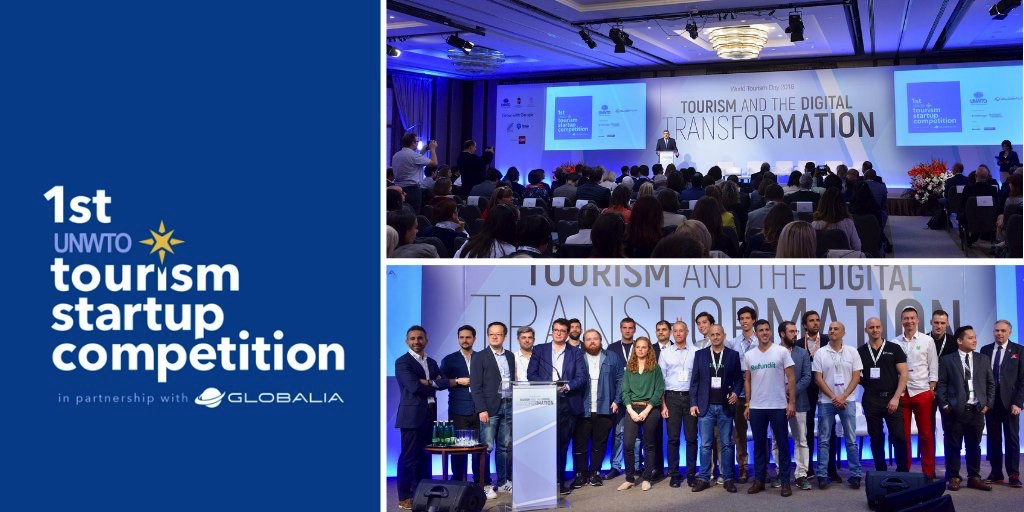
10 finalists announced in 1st UNWTO Tourism Startup Competition
The 1st UNWTO Tourism Startup Competition is a pioneering initiative that has identified emerging companies at the forefront of the transformation of the tourism sector and the promotion of innovation ecosystems through tourism. It is organized by the World Tourism Organization (UNWTO) in partnership with Globalia, the leading tourism group in Spain and Latin America. The 10 finalists will present their projects within the framework of the Fitur International Tourism Fair (23-27 January 2019, Madrid, Spain) with the presence of global tourism leaders from the public and private sectors, as well as potential investors.
The competition sought innovative startups capable of transforming the way people travel and experience tourism, while adhering closely to the principles of sustainability (economic, social, and environmental).
“For the first time, we have positioned tourism in the global innovation agenda, a well-deserved place that reflects the weight and socio-economic impact of tourism,” said UNWTO Secretary-General Zurab Pololikashvili. “The key is to connect the public and private sectors collaboratively, thus creating opportunities to share ideas and projects,” he added.
Each project’s uniqueness, viability, potential impact, business model and scalability, along with the profile of the team, were the criteria for selecting the 10 finalists.
“We have jointly created this pioneering public-private collaborative model in tourism as a global tourism group and we are delighted to spearhead this action alongside the World Tourism Organization, working together to lead the transformation of the tourism sector and fostering the global innovation ecosystem and its entrepreneurs,” said Globalia CEO Javier Hidalgo.
The finalists are notable for proposing innovative projects that redefine the way people plan trips or live tourism experiences, while promoting sustainability and community participation. All this is combined with the application of technology to revolutionize business models and the management of companies in the sector.
Following the model applied on World Tourism Day, the winner will have the opportunity to carry out a pilot project with the Globalia Group and the finalists will have access to the leading actors in the world tourism sector.
An innovative competition
Globalia and the World Tourism Organization have entrusted this initiative to Barrabés.biz, an innovation consultancy with over 20 years of experience in creating, connecting and activating entrepreneurship and innovation ecosystems.
The technological platform chosen to manage the competition was YouNoodle, a pioneering Silicon Valley firm that specializes in innovation and entrepreneurship competitions at the global level.
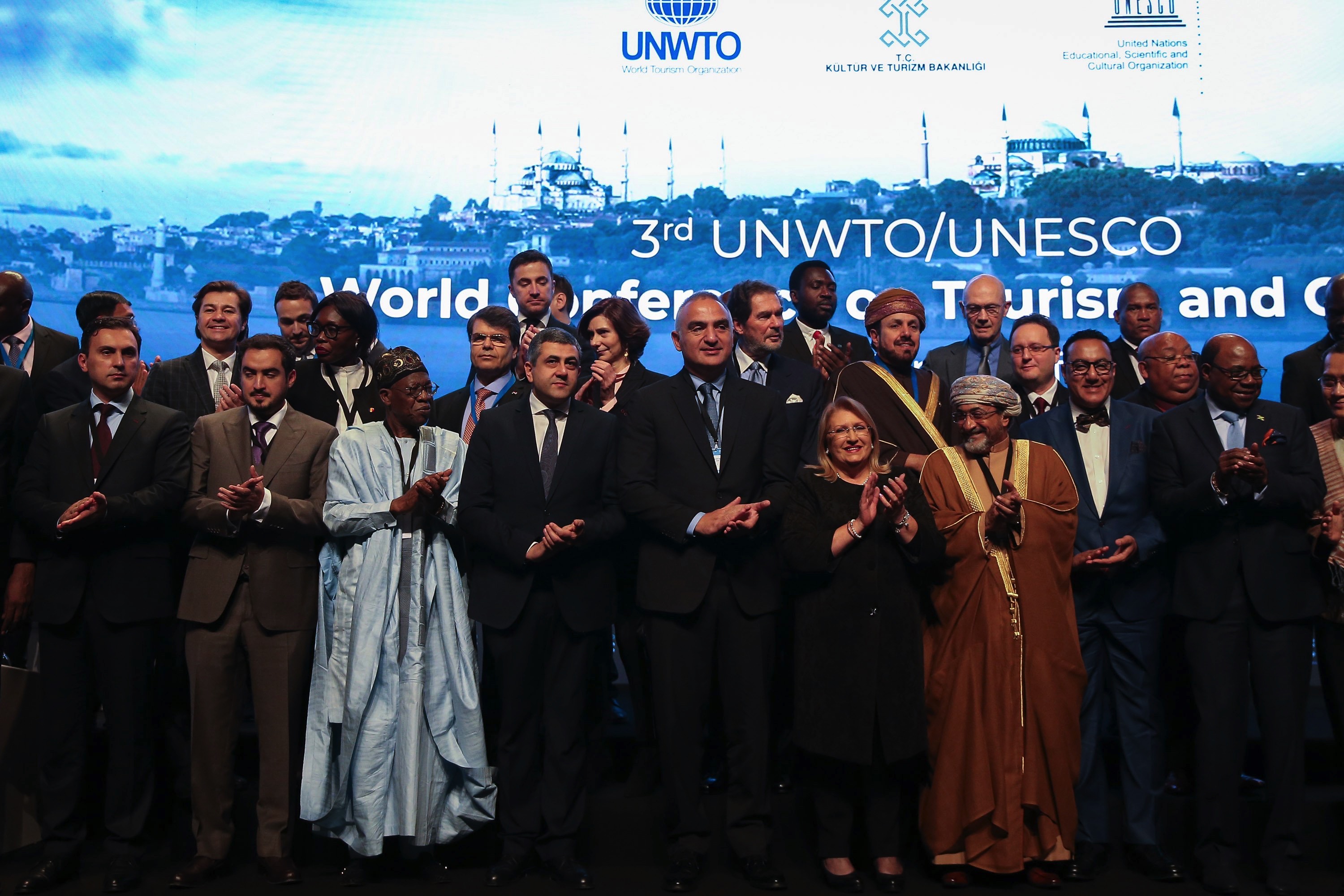
UNWTO/UNESCO Conference: Cultural tourism sustains communities and living heritage
The third cultural tourism conference (3-5 December) organized jointly between the World Tourism Organization (UNWTO) and the United Nations Educational, Scientific and Cultural Organization (UNESCO) concluded today in Istanbul, Turkey. Participants declared their support for cultural tourism as a driver for safeguarding living heritage, catalyzing creativity in cities, and spreading tourism’s socioeconomic benefits to all.
A key conclusion from the conference was the need for a clear and strong link between tourism, culture and local community stakeholders. Cultural tourism policies and strategies must consider the perspectives and interests of local communities, who can also assist governance bodies in balancing tourism development with heritage conservation and safeguarding. Channelling tourism revenues into cultural preservation and community development was identified as a key governance challenge.
President Marie-Louise Coleiro Preca of Malta addressed the conference at its opening, reinforcing that: “In today’s world, tourism diplomacy is becoming more important to foster understanding, and culture is key to achieving this”.
UNESCO Deputy Director-General Xing Qu affirmed tourism’s essential role, stating: “Tourism provides a tremendous opportunity to support local economic development, while breaking down barriers between people. Harnessing creativity and technological innovation, as well as safeguarding heritage is essential for promoting responsible and sustainable tourism to support and unify communities for years to come.”
“Culture is one of the drivers of tourism growth, so protecting cultural heritage and promoting tourism for sustainable development are part of the same equation. That 30-plus ministers from around the world are gathered here proves the place of culture in tourism,” said UNWTO Secretary-General Zurab Pololikashvili opening the event.
These sentiments were echoed by Turkey’s culture and tourism minister Mehmet Ersoy. “The culture and tourism partnership provides a framework for public-private cooperation, education, investments and sustainability,” Minister Ersoy added.
In a debate moderated by the BBC’s Rajan Datar, the more than 30 ministers present concluded that tourism and culture are indivisible and must work together so that tourism does not suffocate cultural heritage and its benefits for visitors and locals. However, the main challenge is to spread cultural tourism’s attractiveness beyond established sites whilst managing large visitor numbers.
The first session of the conference focused on cultural tourism’s potential to help cities transform into more sustainable and creative environments and destinations. It ended in agreement that the creative and cultural sectors can strengthen and provide innovation in cultural tourism, forging links that turn tourism into a tool to safeguard tangible and intangible cultural heritage.
The second day of the event was given over to the twin influence of responsible tourism and technological advances in safeguarding intangible cultural heritage. It was agreed that innovation should be strengthened for better management, promotion and preservation of heritage, as well as to make cultural tourism accessible to all.
During the event, five leading Turkish tourism companies signed the Private Sector Commitment to the UNWTO Global Code of Ethics for Tourism, boosting the efforts of Turkish industry leaders to ensure sustainable development of the sector.
The 3rd UNWTO/UNESCO World Conference on Tourism and Culture will produce a declaration, to be made available soon, outlining the cross-sector commitment of all participants to reinforcing the tourism and culture partnership as an enabler for achieving the 2030 Sustainable Development Agenda of the United Nations. The next edition of the conference is scheduled to take place in Kyoto, Japan in 2019.
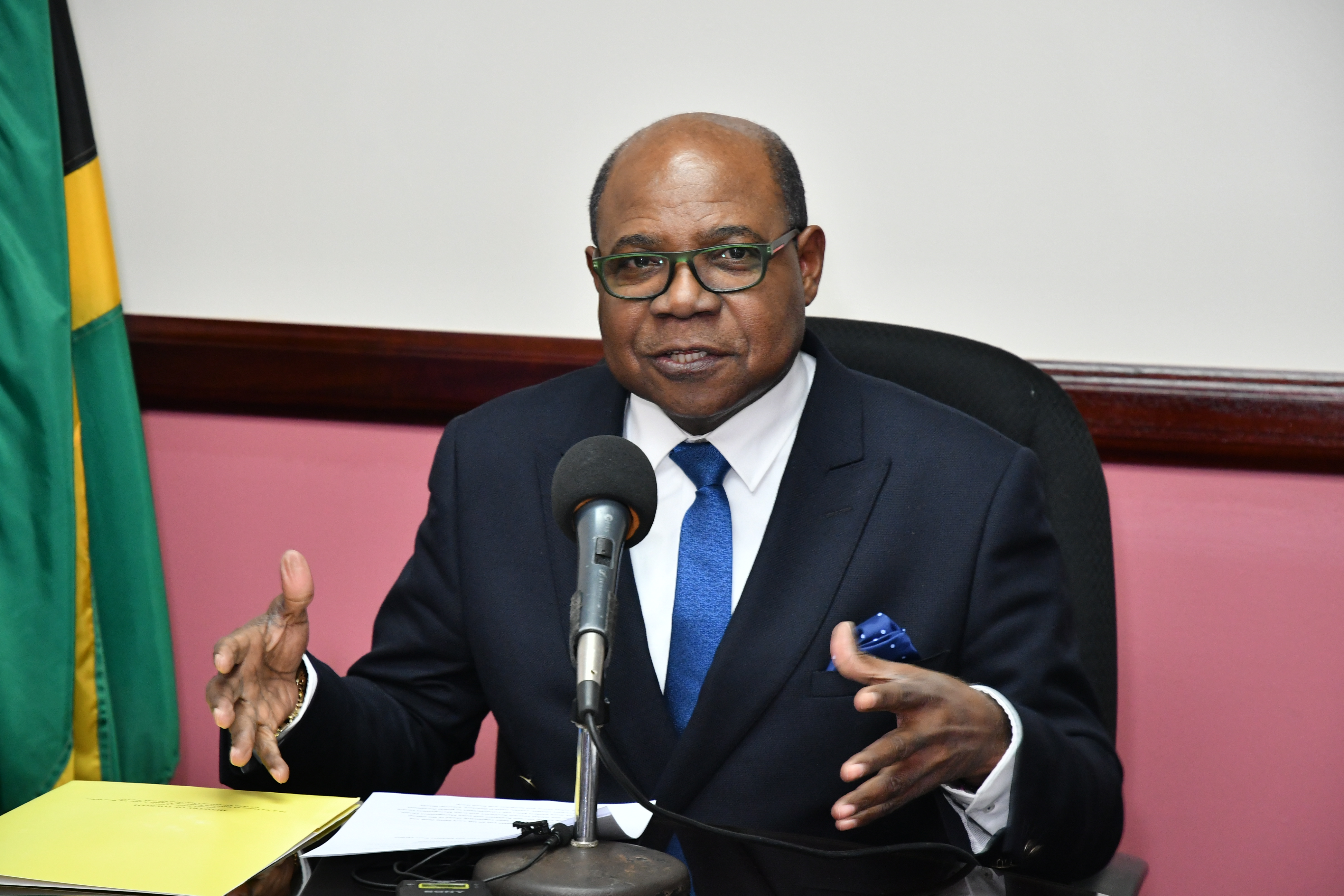
Major Global Entities Show Support for Global Tourism Resilience and Crisis Management Centre
Tourism Minister Hon, Edmund Bartlett says the Global Tourism Resilience and Crisis Management Centre is becoming the most significant global institution in the world, in relation to resilience and crisis management issues, as it has received support from a large number of states and major tourism entities across the world.
Speaking at a press conference at the Ministry of Tourism’s New Kingston Office yesterday (November 29), the Minister noted, “Already, we have a large number of groups that will collaborate with the Centre and help it to start operating on a global basis, even before our launch in January. Some of these partners include the International Institution for Investment in Tourism, the Pacific Asia Travel Association and the Mediterranean Tourism Foundation.”
He went on to note that, “Out of Europe, we have the Global Resilience Council, the United Nations World Tourism Organization, The World Travel & Tourism Council and the Caribbean Hotel & Tourism Association that that has now partnered with us. All these are critical global tourism constructs which have now become part of this entity. Before the Centre gets off the ground properly, it is hugely resourced from across the world,” said Minister Bartlett.
Also joining the leadership of the Centre is Haitham Mattar, Chief Executive Director of the Ras Al Khaimah Tourism Development Authority of the United Arab Emirates (UAE), who has been appointed regional coordinator for the Middle East and will provide technical support.
“Following a successful meeting in Washington DC, I can also share that the Inter-American Development Bank (IDB) has given a full endorsement and commitment to participate with resources. In fact, the country leader for IDB will come to Jamaica in week and a half, to view the site and determine what needs to be done,” said the Minister.
Prime Minister, the Most Hon Andrew Holness and Her Excellency Marie-Louise Coleiro Preca, President of Malta, will also act as honorary chairs to the Global Tourism Resilience and Crisis Management Centre.
“Our board members include some of the leading players in the industry; form every continent, except Oceania. But, we are expected to get Australia on board through the Queensland University connection currently being negotiated in time for the launch,” said the Minister.
The Centre, which will be housed at the University of the West Indies, Mona, is being designed to help vulnerable states across the world, to recover quickly from natural disasters. It will specifically target destination preparedness, management and recovery from disruptions and/or crises that threaten economies and livelihoods globally, with real time data and effective communication.
The Centre will also house a Sustainable Tourism Observatory which will assist with preparedness, management and recovery from disruptions. It will also support policymakers and businesses develop better strategies to support a more competitive global tourism sector.
The official launch of the Global Tourism Resilience and Crisis Management Centre is scheduled for January 2019, during the Caribbean Travel Marketplace, which will be held at the Montego Bay Convention Centre.
“The leaders of a number of global tourism entities as well as leaders of a number of small countries that are vulnerable, will come to Jamaica for the official launch of this Centre,” said the Minister.
It will specifically be tasked with creating, producing and generating toolkits, guidelines and policies to assist with preparatory and recovery efforts of tourism stakeholders affected by climatic, pandemic, cyber-crime and cyber-terrorism related disruptions.
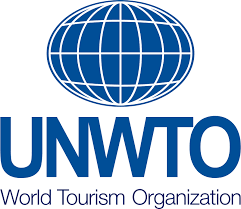
UNWTO: 2018 poised to advance tourism’s leadership among top economic sectors
The latest figures on world tourism issued by the World Tourism Organization (UNWTO) show that international tourist arrivals grew 5% year-on-year in the first nine months of 2018. This reflects continued strong demand in a favorable overall economic context.
All world regions enjoyed robust growth in international tourism in the first nine months of this year, fuelled by solid demand from major source markets. Asia and the Pacific led growth (+7%), followed by Europe and the Middle East (+6% each), Africa (+5%) and the Americas (+3%).
Despite comparatively slower growth between July and September, UNWTO estimates that destinations worldwide received 1,083 million international arrivals through September, an additional 56 million when compared to the same period of 2017.
2018 results to date are in line with UNWTO’s growth forecast of +4% to +5% for the year. The first nine months of the year usually account for about three quarters of total annual international arrivals, as they include the Northern Hemisphere high season months of July and August.
Positive growth in tourism earnings across most destinations
With few exceptions, preliminary data on international tourism receipts confirm the positive trend seen in arrivals, with particularly strong results in Asian and European destinations.
Among the top earners, tourism earnings in the United Kingdom were up by 12% despite a decline in arrivals. In Australia, receipts increased by 11% whereas France reported an 8% growth and Italy 6%, both in line with growth in arrivals. Tourism receipts in the United States, Spain and Germany went up 3%.
In Asia, China recorded a 21% increase in tourism earnings, with Macao (China) and Japan also leading results with 20% and 19% growth, respectively.
International tourism expenditure
Preliminary data on tourism spending for the first nine months of 2018 reflect increasing demand from major source markets.
The Russian Federation (+15%) reported the largest increase in spending and continues to recover strongly after some years of decline. The United Kingdom reported 10% growth despite a weak pound against the euro and US dollar, and tourism spending from France picked up 10% after some years of rather flat growth.
The United States, the world’s second largest source market, recorded a 7% increase in line with the performance of recent years while top source market China showed a minor decrease in spending in the first six months of 2018 as a result of the weaker Yuan.
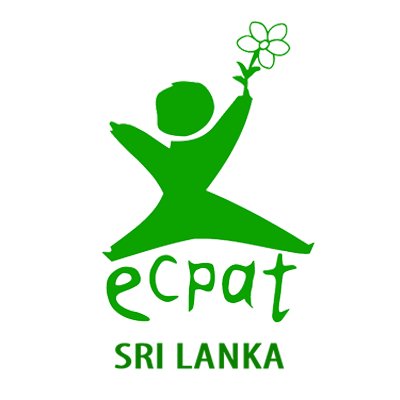
Geneva: Tourism sector meets to tackle human rights issues in the industry
Representatives of the travel and tourism industry are meeting at the UN in Geneva today to discuss the global action needed to end human trafficking, forced labour and the sexual exploitation of children within the sector.
Co-organized by ECPAT and the International Tourism Partnership, the United Nations Forum on Business and Human Rights, will be the first time the sector has gathered to discuss possible solutions to these shared challenges before a United Nations audience.
The travel and tourism industry has rapidly expanded in recent years, with international tourist arrivals increasing from 528 million in 2005 to 1,323 million in 2017. Many developed countries that were once considered “remote” have now opened up to international visitors. However, this expansion has brought challenges to human rights, with the trafficking and sexual exploitation of children increasing alongside the industry’s expansion. No country is immune to this ever-growing risk. However, the industry is also in a unique position to identify the most vulnerable – and to prevent these breaches of human rights.
The industry has a role
“As the reach of global tourism expands, so too do opportunities for those who travel to harm children by sexually exploiting them,” said Theo Noten, Programme Manager, ECPAT Netherlands. “The travel and tourism industry has a key role to play in keeping children safe. Together with business leaders, especially from the travel industry, we call upon the private sector and governments to protect children and meet the commitments made to achieve the Sustainable Development Goals. No child should be left behind!”
Commitment to ending these crimes
At the meeting, experts from non-profit organizations will stand shoulder to shoulder with senior leaders from global travel and tourism companies, such as IATA, the Hilton group and TUI. They will commit to tackling these crimes, which cause misery to millions around the world and in the long-term have a direct impact on the tourism industry.
Speaking before the event, Madhu Rajesh, Director of the International Tourism Partnership explained how her organization is working to help protect human rights in the industry. “ITP convenes the world’s leading hotel groups for collaborative action on these critical human rights issues,” she said. “And in doing so we create practical tools and programmes that help the hotel industry as a whole move further and faster than they can working individually. For example, we’ve united our membership around support for ITP’s Principles on Forced Labour, and encourage their adoption by the wider industry. Through our work, we aim to convene key stakeholders from the public and private sector and encourage cross-sector collaboration on this vital issue.”
End modern slavery
Helen Taylor, Director of Grant Programs at the Global Fund to End Modern Slavery added: “GFEMS is committed to ending modern slavery by making it economically unprofitable, and businesses must play a prominent role if we hope to achieve that mission. We’re pleased to see global tourism business leaders joining forces to work towards our shared goal of fighting human trafficking and hope this forum will motivate other companies to get involved in driving solutions forward as well.”
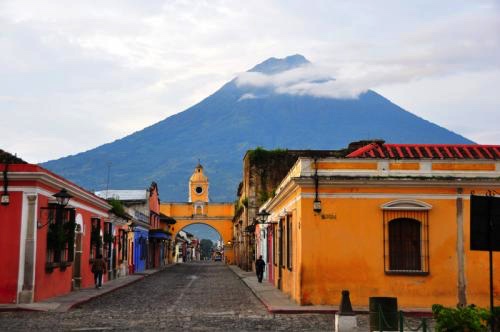
UNWTO features as tourism enters Ibero-American cooperation agenda
The 26th Ibero-American Summit of Heads of State and Government (La Antigua, Guatemala, 15-16 November) concluded with a high-level political declaration on sustainable development in which tourism plays a key supporting role. The commitment, which includes the World Tourism Organization (UNWTO), marks the first time the tourism sector has been featured in a top-level multilateral cooperation agenda.
Ibero-American presidents and heads of state have mandated the Ibero-American General Secretariat (SEGIB) with introducing tourism in the development cooperation portfolio of its 22 member states, all of which are also UNWTO Member States.
In the ‘La Antigua Action Program for Ibero-American Cooperation’, the mandate from heads of state and government specifically calls on SEGIB to closely coordinate its future work around tourism with UNWTO. Both organizations are asked to collaborate on initiatives to promote sustainable tourism that can impact on development, partnering with key actors of the United Nations’ 2030 Agenda for Sustainable Development.
This accord is unprecedented for its inclusion of tourism in an international multilateral action plan for cooperation. The commitment includes tourism and the economy together as one issue area, urging states to prioritize public policies for developing and managing sustainable and responsible tourism to boost competitiveness.
A first contribution of UNWTO has been the publication “The Contribution of Tourism to the Sustainable Development Goals in Ibero-America”, produced on the occasion of the First Ibero-American Conference of Ministers of Economy and Tourism held in September, and leading up to Summit of Presidents and Heads of State.
This advance has the potential to give tourism a deservedly strong voice at the highest political and policy levels, adding value to economies and complementing UNWTO’s work with its members and partners across and beyond Ibero-American states.

He is WTTC’s “Travel & Tourism job creation Champion”
Speaking today at the inaugural WTTC Africa Leaders Forum in Stellenbosch, South Africa, which was hosted by Tourism South Africa, Guevara said: “In his State of the Nation address in February this year, President Ramaphosa not only mentioned the “incredible opportunities” of Travel & Tourism, he also set a powerful target to double the number of people directly employed in our sector from 700,000 to 1.4 million.
President Ramaphosa of South Africa is a “Travel & Tourism job creation champion” for his ambition to double the number of people employed in the sector, according to Gloria Guevara, President & CEO of the World Travel & Tourism Council (WTTC).
“Travel & Tourism is without doubt South Africa’s greatest engine for the creation of jobs and the alleviation of poverty. It contributes to social equality, encourages the integration of women in the workplace, and enables economic self-reliance. It provides employment in parts of the country where other jobs may not exist and generates a sense of self-worth. We praise the Government for recognising those “incredible opportunities” of our sector and the steps it has already taken to realise the potential.
“We see those opportunities falling in three broad areas: We congratulate the Government of President Ramaphosa for its efforts to reform the visa process so that more tourists from more countries can visit the country and recommend that this is rolled-out as widely as possible. Secondly, we support the long-held ambition to fully liberalise the continent’s air services. Finally, we see the benefits of South Africa’s continued adoption of biometrics as a way to make travel safer and more efficient.
“These and other initiatives will help to achieve President Ramaphosa’s ambitions and we look forward to continuing our strong partnership with his Minister of Tourism, His Excellency Derek Hanekom,” concluded Guevara.
According to annually published WTTC data, Travel & Tourism currently contributes a total of 8.9% of South Africa’s GDP and creates 726,000 jobs directly, rising to 1.5 million when all the impacts of the sector are taken into account.
WTTC represents the global Travel & Tourism private sector. Its Members consist of more than 170 Chairs, Presidents and CEOs from companies in every part of the Travel & Tourism sector.
Given the potential of Travel & Tourism in Africa, WTTC gathered the CEOs and regional leaders of the top Travel & Tourism companies from across Africa, along with Tourism Ministers and regional experts at its inaugural Africa Leaders Forum in Stellenbosch to discuss the key issues facing the region’s Travel & Tourism sector. WTTC would like to thank the South Africa Ministry of Tourism for its hospitality in helping to bring the sector together to facilitate the dialogue.
